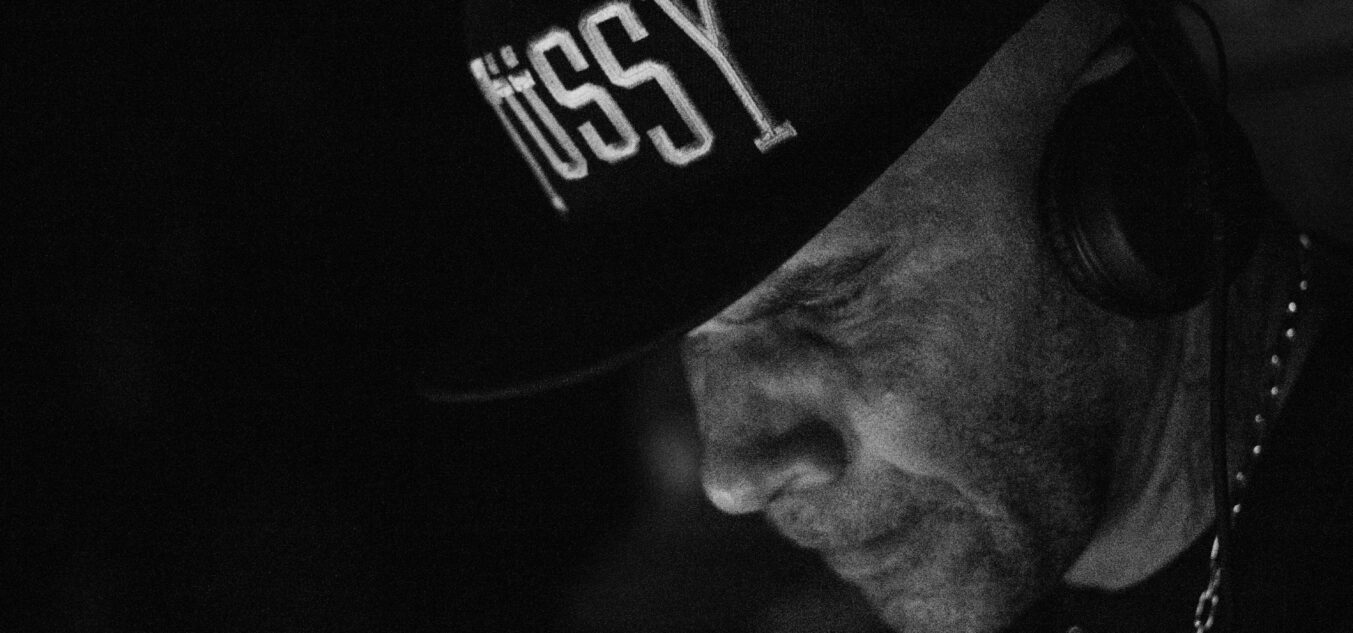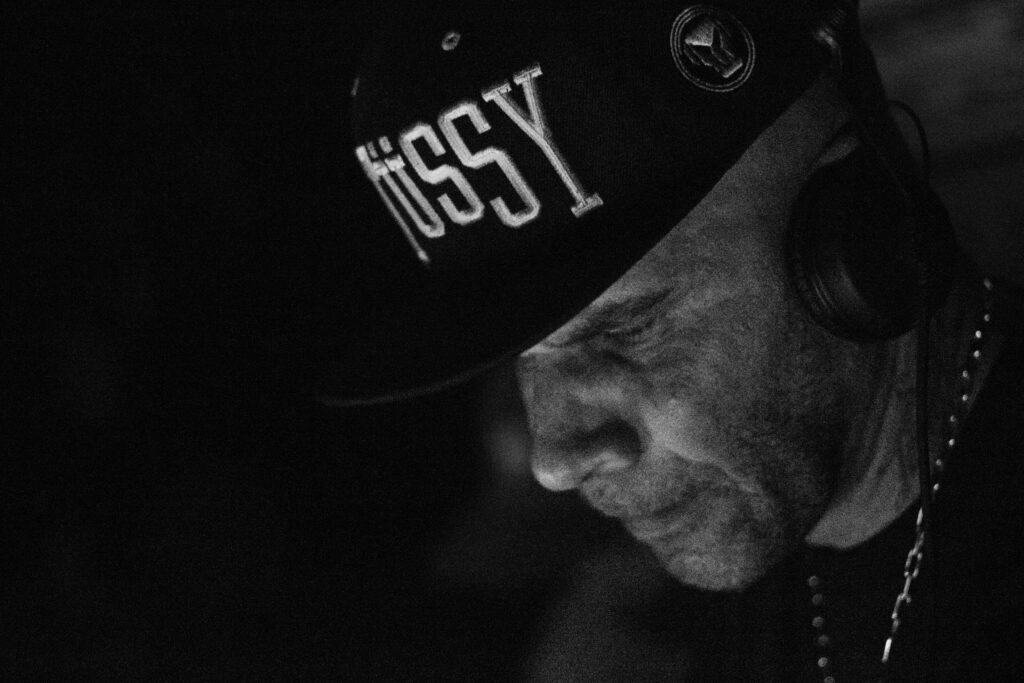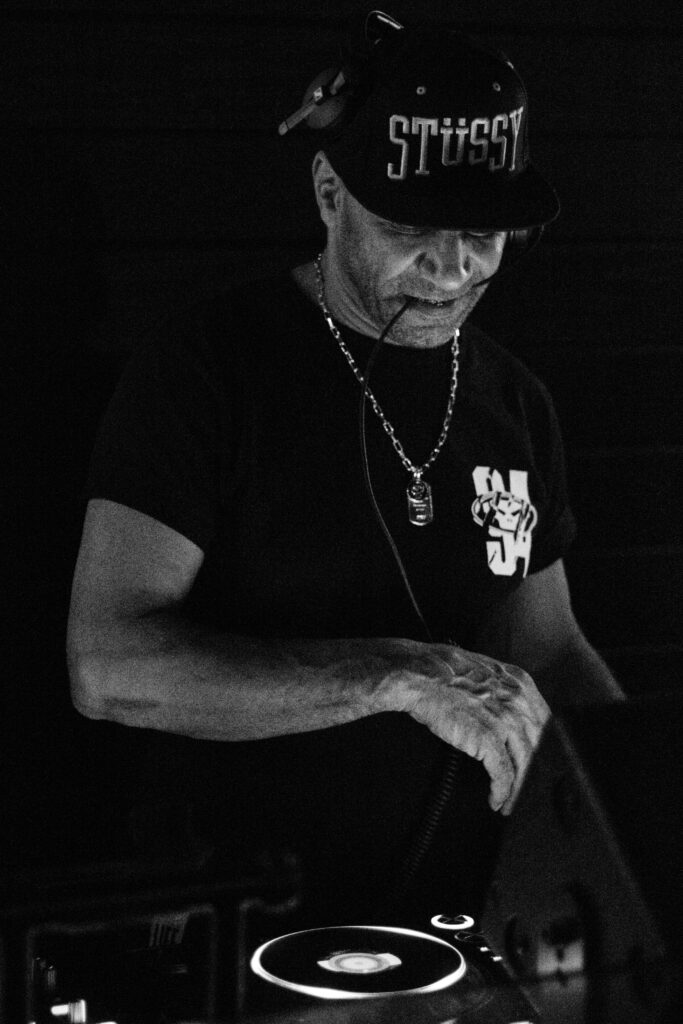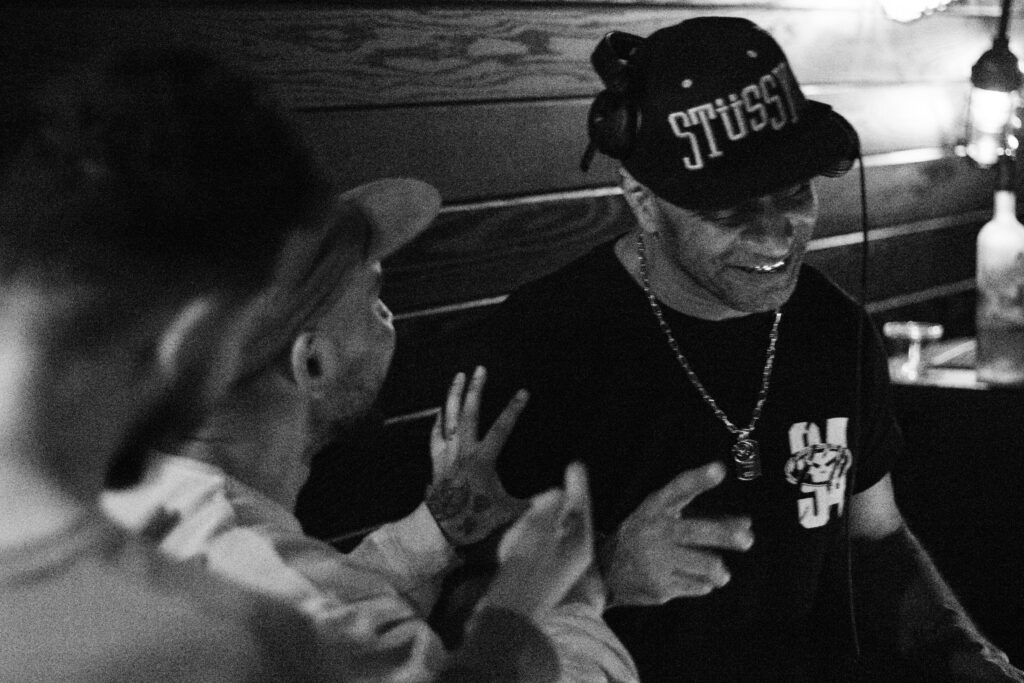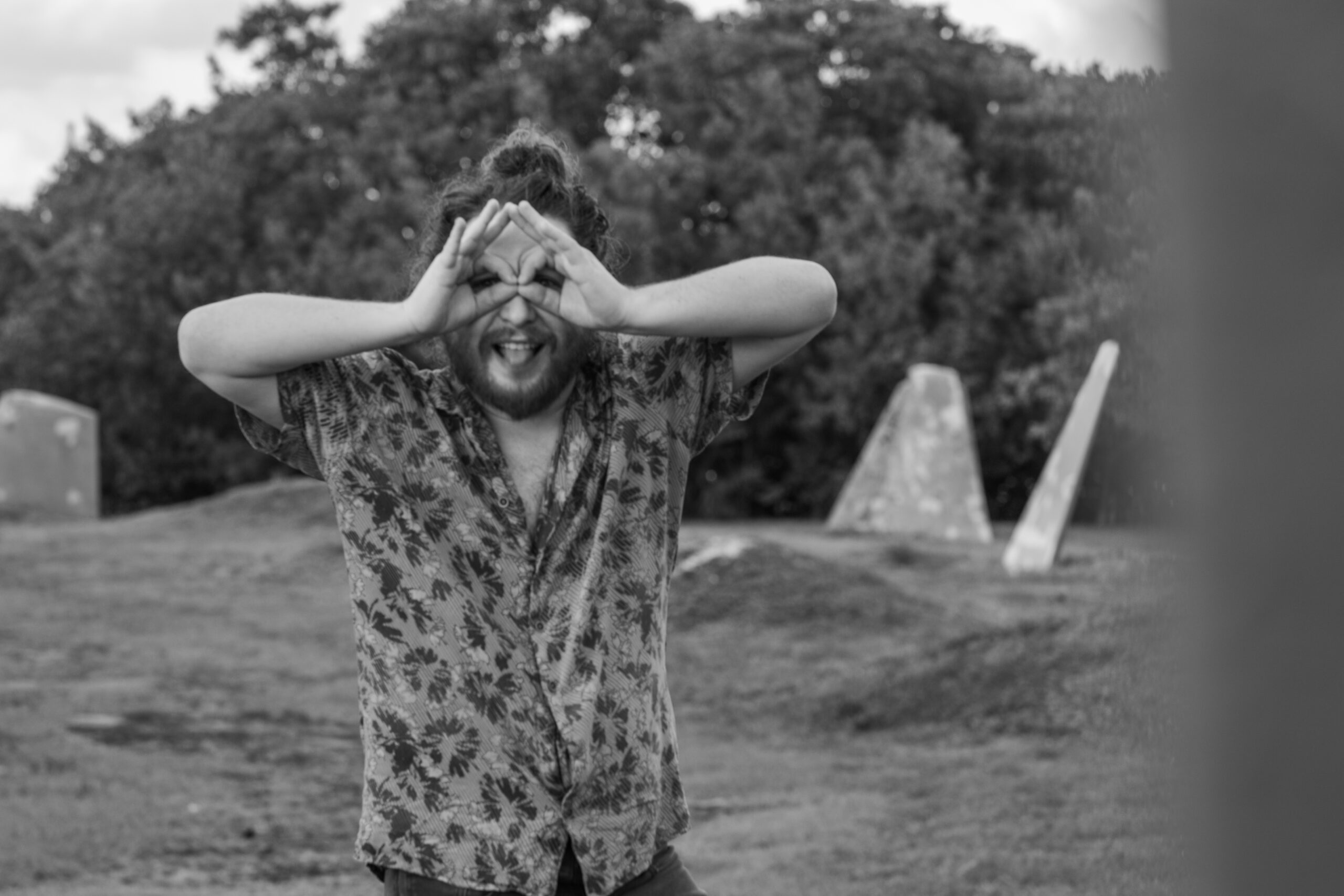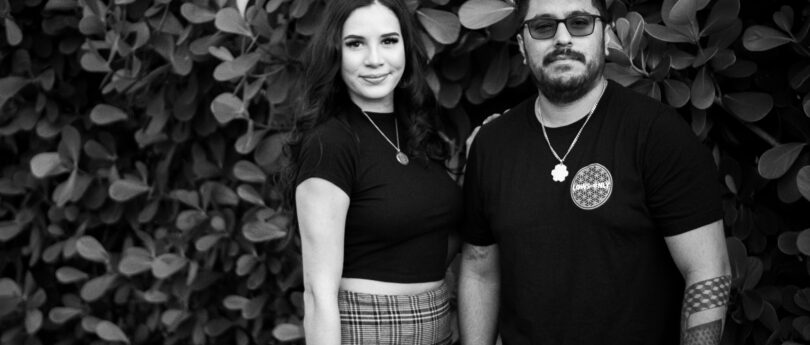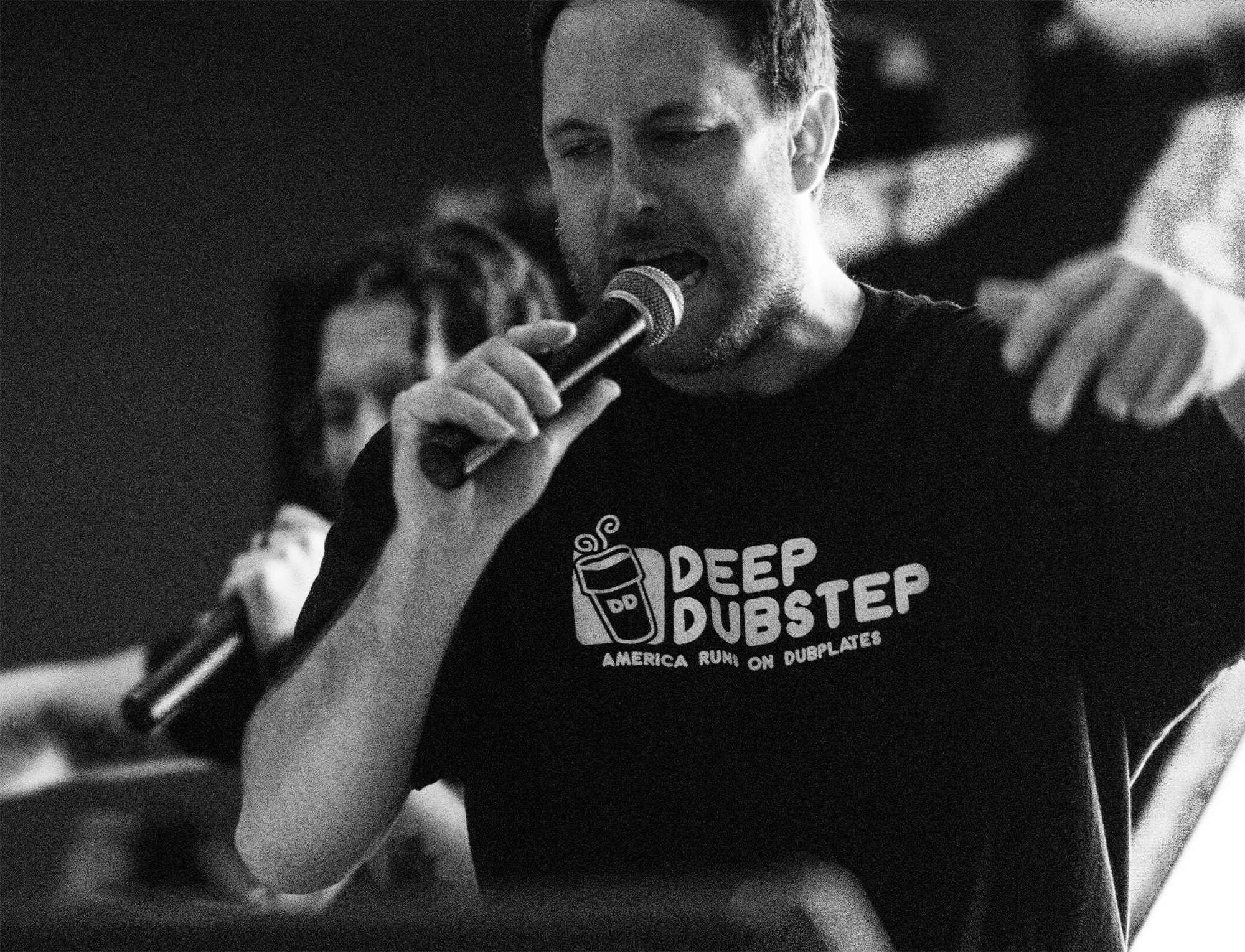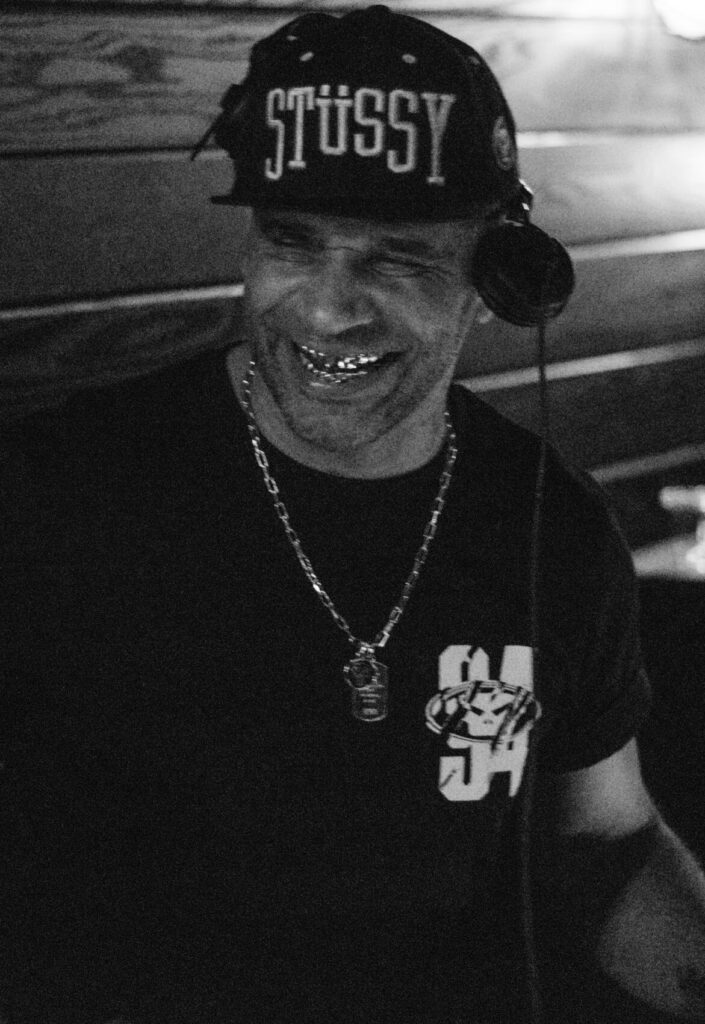
Goldie
Clifford Joseph Price MBE, born September 19,1965, better known as Goldie, is a British music producer and DJ. Known throughout the music industry as the “King of Jungle”, Goldie is an artist whose ferocious creativity knows no bounds.
Initially gaining exposure for his work as a graffiti artist, Goldie became well known for his pioneering role as a musician in the 1990s UK jungle, drum and bass and breakbeat hardcore scenes. He released a variety of singles under the pseudonym Rufige Kru and co-founded the label Metalheadz.
Born and bred on the breakdancing and hip-hop culture he absorbed during trips to the States in his youth, Goldie recorded his first track, “Terminator”, in 1993. His debut album, “Timeless”, followed two years later, and was hailed by critics as a masterpiece. The album fused the hyper-syncopated breakbeats and reggae chic common in jungle music with a provocative bassline and soulful diva vocals. That album’s title track, a 21-minute symphonic piece, was a masterstroke, and the lively “Inner City Life” was a smash.
With his reputation firmly established, he released his sophomore album in 1998, Saturnzreturn. The album’s opening track, “Mother” a 60-minute orchestral and drum-n-bass piece, is a haunting track and serves as the companion piece to “Timeless.” The remainder of the album, featuring cameos by David Bowie, Noel Gallagher of Oasis, and rapper KRS-One, is a mishmash of Goldie’s signature sound.
The Interview
By Calvin Cyrus
You were awarded one of the highest honors in England, in being presented with the Queen’s MBE. Most Americans don’t even know what an MBE is. Can you help our audience understand what that is and what it meant to receive one?
An MBE is a Member of the British Empire. Yes, this is the same empire that went crazy in the 13th, 14th, 15th century. I was really antsy to begin all of this. You have to understand that the queen and the king don’t actually know who we are. However, you get nominated for an MBE or OBE, which is pretty much the same thing, or a knighthood, in your service to the community.
It was very disgruntling in the beginning of understanding what an MBE was and what it means. Some people in the UK, left wing or right wing, can say it could be a bad thing, but it’s like making change within an empire of any sorts. You need to wheel the trojan horse inside the castle walls and then we get out and we make change, and that’s how I weigh it up.
So, an MBE was in the balance with me, with whether or not to accept it, because there has been controversy to what the empire really means, I get that. But I am not my grandfather’s grandfather’s grandfather, and I am not to be sold for a gold coin, either.
I had the same conversation with Steven Graham. He was saying, “You know I’ve been up for this OBE, what do I do?”
Well, my mate said, “Ahh don’t take it!”
I says “You know what, you take it for your family and you take it to make change. You can go and start a drama school now and make change.”
That’s the thing, in modern times, we need modern ways of how to change that system. I’m very anti-system but here’s the other part of answering that question. I was brought up in the system, in 4 children’s homes and 3 failed foster homes. Someone with my background was never expected to make it, especially going to Buckingham Palace and getting such an award. So, when I take that award, I take it knowing that I can make change from inside of those walls, but I’ll never be them.
So did you get the MBE as a result of your influence, musically?
Not many people know this, but I have 2 honorary degrees, so I’m a doctorate twice. I’ve got a doctrine from Wolverhampton, the city I came from, which is a PHD of art and design, and I have a PHD from Brunel University in music and design. I also have a professorship from Thames Valley University. They are given to me through making change. Someone of my background, that seemingly has his hands tied behind his back, is dyslexic and has no learning abilities with math and english, still has an inner idea of art and music. So they were given to me for my contribution to the community, of which I’ve served for the last 40 years.
Knowing that music means so much more to your story, especially the music that you helped bring attention to, like dnb and jungle, when you see musicians now that represent those genres, what do you think of that and where dnb is going?
I look at it like this, when you’re handed down music from our grandfathers and our uncles, I was handed down Motown, I was handed down Rare Groove, I was handed down Punk. I was handed Rock music. It was handed down to me.
This is a genre of music which I helped create and I’m involved in. I’m sitting in my studio, at 57, making the music I was making at 27. Put that into comparison to a generation now that are making music at lets say 14, 15, 16, 17. I grew up in this music so I can’t regress and make young kid’s music in the way that commerciality expects of these kids.
My dutifulness is somewhat different than Andy C, it’s different than Netsky. I’d like to think in the maturity of making this music, I have excelled what my fathers would be proud of, in terms of genre defining and pushing the envelope to the extremes of what the possibilities of a genre are.
That does not mean I’m supposed to cop out and start making baby music to give to these kids, just because they like it. Because I’ve grown up in it, I have a dutifulness to push the boundaries of the genre, which I’ve always done. I’m quite happy with allowing a 30 year old dnb label, namely Metalheadz, to take on the amulet or the leather glove or the ruby or the ingot, to move forward the genre in the various gears that the genre demands.
I’m going to say this, Charles Mingus is a Jazz musician, Miles Davis is a Jazz musician; Kenny G plays Jazz music. There’s a big difference. You can play this music as much as you’d like, and you can get computers and you can make it, but are you the jazz within the music?
That does not mean that we’re not allowed to formulate and make music. Nia Archives and Cherelle, they’ve got a line of passage. Make sure you do your homework and understand that you’re on a train and there are carriages before you and there will be carriages ahead of you.
There’s a difference in growing up in the music, I’ve grown up in this music. I’ve spent the last 30 years in dnb and the last 41 years in urban culture.
Speaking of Urban Culture, I’m from Miami and you have history in Miami. Can you explain what brought you here?
Miami, the 305, is a massive part of my journey. I went from the midlands in Wolverhampton, chasing a dream, looking at Americanism, and I followed that dream.
At 17 and a half, I was in New York under the wing of a crew, which I’m still with, TATs crew. In searching for my own identity and creating the Goldie character, I then realized that this character had a father. So I went to search for my father in Miami. He was a minister and a roofer, he used to be a gangster, but he ended up being a minister. He was what they call a roots man. My dad was a medicine man, in that respect, within the Jamaican community. I never knew how far and deep that went with his allotments and his farming that he had, where he would be the guy that everyone went to that had cancer or ailments and stuff. That could be seen as an Obeah man, but my dad was a herbsman. People knew that he was a strong church goer, seventh day Adventist, and I wanted to meet him. I wanted to be with him. I stayed with my dad for about a year.
I went to live with my friends in Miami and we shared a house. I ended up meeting a few graffiti writers and people that I still know to this day. I was working at the USA Flea Market #1, which is no longer there. Miami is a massive massive part of my life; going to booty clubs when Luke Skyywalker was at his peak. I even got my friends a record deal with a few English companies here, so my whole life in Miami and having met in the 90s was a very big thing for us. It was a part of the culture which laid the seed.
What is it like to know that people find representation through you? That people look at you and say “Wow, that’s the Goldie. He did the thing that everyone told him he couldn’t.”
It’s a very strange case for me because my fruit doesn’t hang low. I’ve always had high hanging fruit that I’ve had to scale the tree to grab.
The idea of exceeding fame. Let’s look at it a different way. If I take away who I am, the character I created through trauma, through not being accepted, and I write every name of every person that I’ve spoken to and met, including people that you would not expect, like in the weirdest of ways, you think “fuck me.” From Ted Turner, to Val Kilmer, to Laurence Fishbourne, to Steven Graham. Everyone. From Madonna, to all of these people, you think, “Dammit, this is a journey of a kid that just fell into this music and this dnb music, at that.”
We did that thing where we change it. It was never gonna be acceptable to the masses because the last time I checked, we make wildstyle music. It just so happens, like any genre, it will peak, whether it’s grime, whether it’s dubstep, it has a point where it peaks. In anything, whether it’s jazz or b-bop or Motown. Let’s say punk, techno, all of these things peak, and if they’re successful enough, they regurgitate and they come back around.
I know artists in Detroit that are broke. Big players that created techno. I see how the world has taken it and how it’s become this bigger thing.
What is fame? What is success? How do you measure success? I’ve had all of the cars; the Bentleys, the Ferraris, The Porsches. In fact, I’ve destroyed cars. I’ve blew engines.
I think part of something serendipitously struck a note inside of me that I realize I’m an artist that has grown up through trauma and success, when it comes. At least I came up through success in a way that I can walk down the street and have respect.
I know people that suffered with fame that can’t go out of their houses. Like Robbie Williams is a great example, Robbie couldn’t go anywhere. He suffered, Robbie for that, mentally. And I think Ed Sheeran goes through the same because Ed’s a megastar. It’s a difficult thing to do.
I remember seeing the point of “How far can you take fame?” As a producer, you can take it to a point where you make successful albums, but I didn’t want to make successful albums for other people, I wanted to make albums that were cutting edge for myself. Making fierce commitments to make ‘Mother’ instead of Madonna’s album is a thing because I made those choices. I made them purely because that would’ve been the end of me because I’m tied to this sound which I follow in my heart, not financially.
Call it what you will, but I’ve been through success and I don’t measure it in Ferraris and Bentleys. Money can bring you a lot, but it can’t bring you happiness and I’ve realized that the hard way. I learned what wealth is and not richness. Wealth is yoga and well being.
This is just a kid who’s looking back thinking “Fuck, what a trip that was!” The one thing that I have intact, and my purpose, is to make as much noise in music and leave physical evidence that I was here. You’re only as good as the last sound you tried to bang around people’s ears. You’ve got to create. Creation is the key and I’ll be doing that until I take my last breath. I’m hoping it won’t be anytime in the near future.
You exude a fatherly vibe. You have the experience and wisdom that oozes off of you. I think to juxtapose that with your upbringing without a father has made you embody that for yourself. Would you agree?
That’s a fact. My father was never there. I have a difficult relationship with one of my daughters because she just won’t let go and you have to let go. Your journey is your journey.
I was fatherless and this music, the street and the addiction I’ve gone through is because of that street corner; that’s the masculine energy. Embracing your effeminate is probably the best thing you can do as a male. Embrace your effeminate and then you’ll find what fatherhood means. I know that sounds ironic. The idea of finding fatherhood is by letting go and finding what effeminate is.
Understand that everything destructive is just energy that’s just imploding and exploding and imploding, and it’s just catastrophic. The idea of energy circling and creating and giving birth, it’s all unfolding isn’t it. Flowers unfold, we unfold, our kids unfold when they come out of the woman. We unfold.
I think the reason I’ve always been different with music, there’s a lot of yin and yan energy in my music, but it’s still Sea of Tears and it’s still St. Angel. It’s still Ever Wanted, and it’s still This is a Bad. It’s still Mother, and it’s still Inner City Life. There’s always going to be that with me, because you can’t have one without the other. I think I’m embracing what father is because of that. It’s allowed us to mother our basic needs.
You’re in Thailand now. You were in Miami for MMW. You’re left and right, all over, and you’ve done that on the back of music, which for every artist is the pinnacle; the dream. Tell me something you can share, that’s a getaway for you where you can escape.
I love playing in New York. It turns me on, playing in New York. Henry Chalfant became a really close friend, and this is a guy who’s a legend, man. Godfather of graffiti. Staying in Brooklyn and breaking bread with this guy; realizing when I was first there, the Bronx was pretty much on fire, and seeing how it’s changed and how the Phoenix has rose, that gives me something.
I always say the 3 most important things in life, and my daughter will tell you: love, time, and memory. Either one of those things cannot work without the other. You need time, if you fall out with someone, you need time to heal the love, and the love and the memory to be able to remember it. When you lose a parent because they become senile or they lose their minds, and I’ve seen relatives lose their minds and have no memory of you, the importance of love and time and memory, it’s the most predominant.
The idea is that we’re only here for a moment.
I like to get off a plane in Tokyo because it smells different, and going to see Mito at the Goro store in Harajuku, or smelling pizza and brake dust and the train in New York, and being on Miami beach and watching the pelicans just grab their food in the morning after I’ve come from yoga. Creating these memories are important. I think, there’s a thing which we have in our home, there’s a few boxes in this home they’re called love boxes, they have memories in them. They have letters, they have bed knobs, hotel knockers, room keys, dice, hotel chips, fake food, whatever I could steal from a hotel. Whatever I could get, lamp shades, bits and stuff. They’re archives. When we see random things, we need to create memories,and I think that this generation needs to understand that. If I can’t take away this phone from you for a month, we’re pretty much doomed. Most of these kids cannot live without, and I can. Being in the mountains, being in the lake, laying there watching a water snake just drift by me. I’m in this place where I’m the happiest I’ve ever been.
There’s lots of different things that you need to remember when we’re talking about what’s your favorite place. What’s my favorite record? Today? Today, it’s called Pat Metheny, If I could. Yesterday, it was Charles Mingus. Tomorrow, I don’t know what it’s going to be. And that answers the next question, don’t ask me what the future of music is! Don’t ask me where it’s going. What you do today creates tomorrow. There is no future and that is it.
Last question. Through it all, are you satisfied? Are you happy?
I feel like I have done nothing in my life. That’s how I feel and I really mean that. I feel that maybe now I can get some work done. I think I am broken in that respect. My wife says, “Look at what we have.” I’m like, “You’re right. Yeah. I get it.” She says, “You’re just insatiable.” I have an insatiable desire in the arts and I just have to be in the moment. I think that I just feel like I haven’t done anything, but that’s just through trauma.
I understand these things I have. I understand these accolades or things, I get that, but it’s just stuff. I think I’ve made some changes and I hope I’ll do a few more. It’s just the way I am. I don’t think I’ll be at peace until I shout action and start doing Timeless. We wrote 6 episodes. I been writing for this for 7 fucking years. It’s been in existence for 25, ever since I made Timeless, the album. I wrote 375 pages, or whatever it was, and I have this screenplay called Cine Temporae which I’ve spoke about for years and I’m just hoping this motherfucker does not evade me before I pass, because that’s how it feels. We wrote it. We paid for it. We did it. I’m just waiting for broadcasters to have the balls to go, “There ya go, there’s the money. go make it.”
I think because I’m at this period of my life everything else doesn’t matter right now. Cine Temporae. Me directing the first 2 episodes. A female doing 3 and 4, and a really cool director on 5 and 6. It’s there. It’s like Timeless was in my head before we started making the fucking thing, so I did the same with this. Here’s 6 episodes, write this down and there we go. And we’re off. So, I think I’ll get there in the end, but I still have a massive insatiable desire.
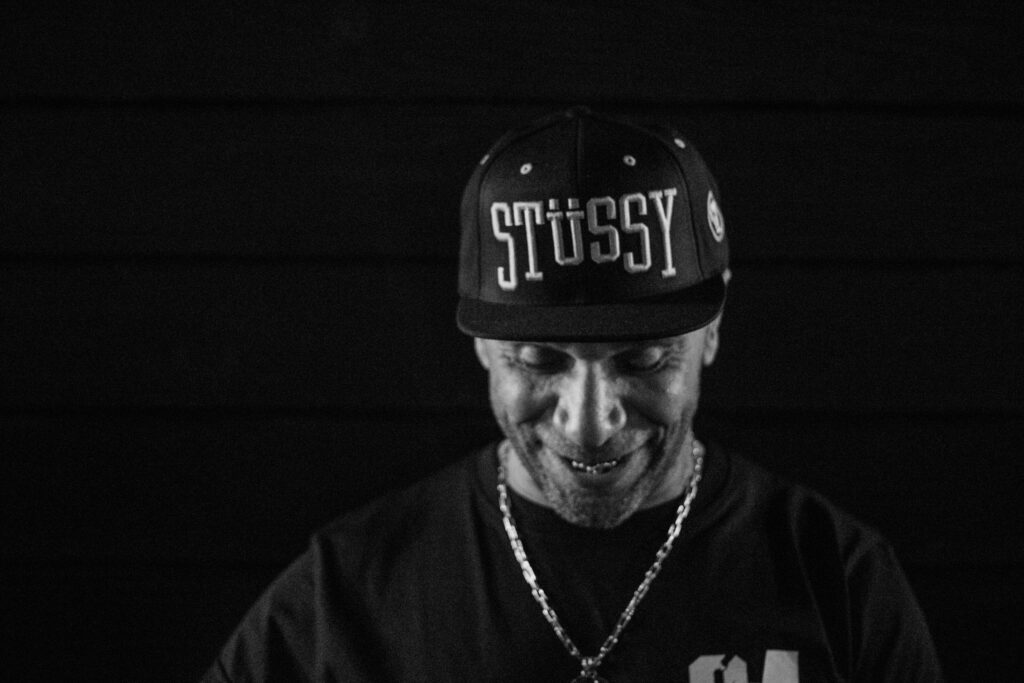
Follow Goldie online
Facebook
https://www.facebook.com/Goldie
Instagram
@mrgoldie
Bandcamp
https://goldiemusic.bandcamp.com/album/timeless-the-remixes
